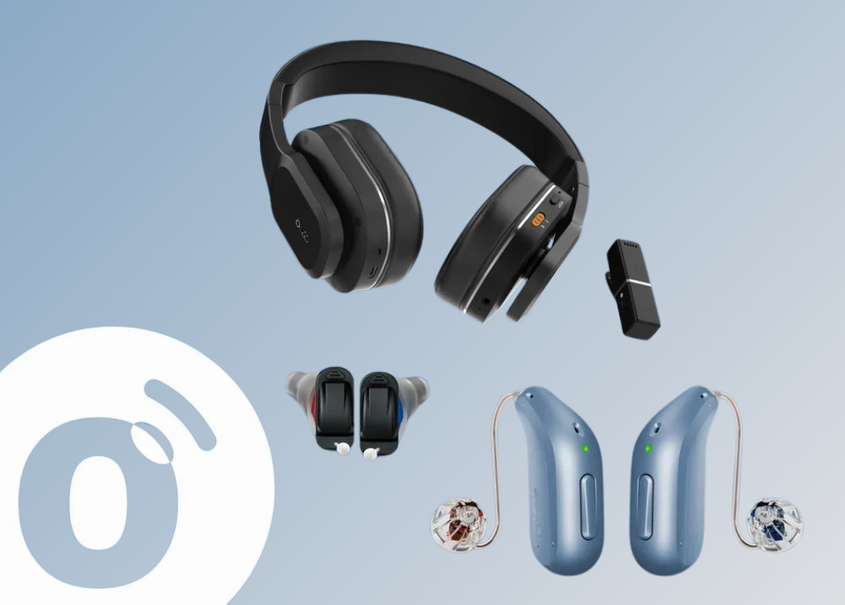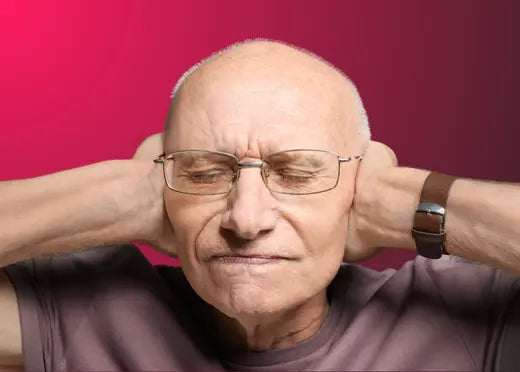Find out what a hearing amplifier is, how it differs from a traditional hearing aid, and when to choose this more accessible, non-prescription solution.
What is a hearing amplifier?
Definition and basic operation
A hearing amplifier is an electronic device designed to capture ambient sounds and reproduce them at a higher volume. It requires no prescription or complex adjustments, making it immediately accessible to people with mild hearing loss or occasional needs.
Technologies used in modern amplifiers
The latest models incorporate directional microphones, digital amplification, and sometimes basic sound processing. However, their operation remains standardized, with no customization based on the user's hearing profile.
Regulatory framework and legal status
Hearing amplifiers are not medical devices. They can be purchased freely online, in pharmacies, or in stores, without a prescription. This explains their growing popularity among people experiencing loss of autonomy or those resistant to traditional hearing aids.
Hearing amplifier or hearing aid: what are the differences?
Technology comparison and sound quality
A hearing aid is a highly personalized medical device. It precisely processes deficient frequencies and filters out unwanted noise in real time. Conversely, an amplifier amplifies all sounds without distinction, which can be uncomfortable in certain contexts.
Price differences and accessibility
Hearing aids, prescribed by a doctor, are covered by social security and mutual insurance companies, but their initial cost can exceed €1,000. Hearing amplifiers like Spokeo, at €598 including tax, are an affordable and readily available intermediate solution.
Personalization and adaptation to needs
Hearing aids require fine-tuning by a hearing care professional and are tailored to each ear's hearing. Amplifiers, on the other hand, offer standard amplification, sometimes aided by simple adjustments or voice-targeting technologies.
Professional monitoring and maintenance
A coordinated care pathway, including an ENT specialist and a hearing care professional, is essential for hearing aids. This is the preferred solution for independent, motivated individuals ready to commit to the long term. Amplifiers do not require follow-up care, which may be appropriate in other cases.
When should you choose a hearing amplifier?
Mild Hearing Loss: Signs and Symptoms
If you have difficulty hearing on television, in noisy places or in meetings, but the discomfort remains moderate, a hearing amplifier can help you regain comfort in your daily life.
In case of dependency or refusal of equipment
For elderly people who are losing their independence, or those who refuse the traditional route for practical, cultural or psychological reasons, an amplifier is a realistic and immediately operational solution.
Transition period or one-off need
The amplifier can also be used temporarily, while waiting for medical equipment or for specific situations: meals, telephone calls, consultations, etc.
Budgetary constraints and urgency for action
When a quick solution is needed and the budget is limited, the amplifier represents a useful option to break the isolation and rediscover the pleasure of exchanges.
Limitations of conventional hearing amplifiers
Non-personalized amplification
Without adaptation to the user's hearing curve, some sounds may be too loud while others remain inaudible. This limits effectiveness in complex environments.
Limited sound filtering
Few amplifiers are able to distinguish a nearby voice from background noise. This makes them less effective in noisy environments, where medical hearing aids remain more effective.
No follow-up or progress
In the absence of audiological monitoring, it is difficult to assess the progression of hearing loss and ensure continued adaptation.
Spokeo: an innovative listening assistant
For those who cannot or do not wish to undergo medical treatment, Spokeo, an innovative listening assistant , offers an effective, simple and discreet technological alternative.
Intelligent Speech Processing
Thanks to a remote wireless microphone, Spokeo picks up only the speaker's voice and sends it directly to the headset. Its dual conduction (air + bone) bypasses obstacles in the ear canal.
Adaptive technology
Spokeo automatically adjusts sound reproduction according to ambient noise level and listening conditions, for maximum comfort without manual adjustment.
Simplicity and comfort of use
With no complex settings or app downloads, Spokeo is ready to use right out of the box. It's ideal for the elderly or those with dependents.
Price and accessibility
Priced at €598 including VAT, Spokeo is available without a prescription, with a warranty and dedicated customer service. A hybrid solution combining the comfort of headphones with the targeted effectiveness of modern listening assistants.













